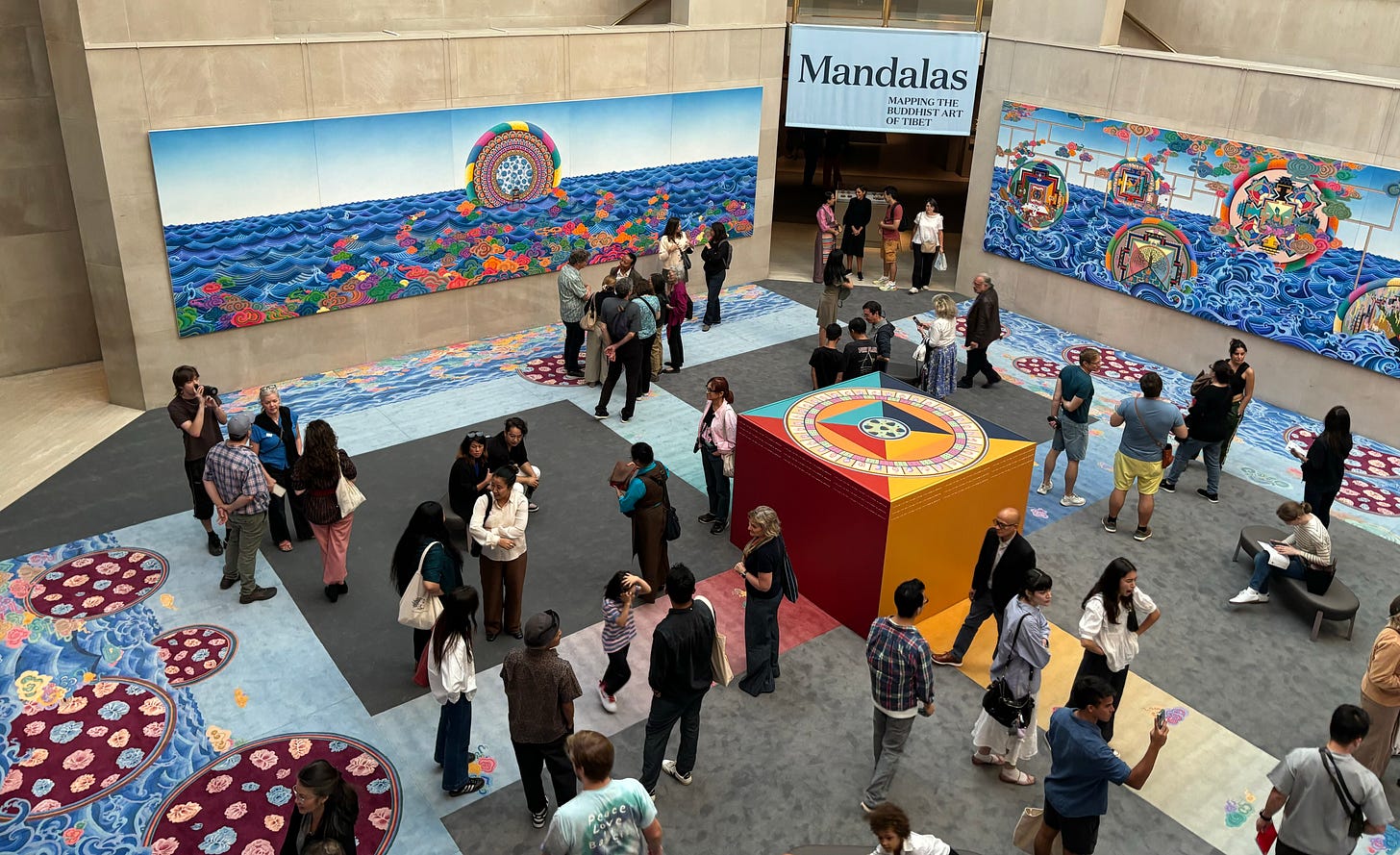SACRED CIRCLES
Crossbreeds, Cannibals, and New Global Visions
Mandalas: Mapping The Buddhist Art of Tibet, an exhibition now on view at The Metropolitan Museum of Art consists of devotional objects; removed from the environs for which they were made, to be put on public display as treasures of mysterious beauty. One cannot escape an elegiac tinge, or feelings of rage, toward the wanton defilement of a venerable culture by murderous Maoists in 1959. The exhibition is presented in the peripheral galleries that encircle the skylit atrium of the Met’s Lehman Wing, which has been transformed into a 3-dimensional mandala-palace by Tibetan-American artist Tenzing Rigdol (b. 1982). Four large canvases depict blue skies, through which multicolored clouds drift above turbulent seas. The choppy waters of Hell Gate that wash the shores of Astoria, where Tenzing lives, may have served as inspiration. Rising out of the waters are a series of mandalas (मण्डल), linked by a series of ribbon-like right-angle connectors. Within each sacred circle is a discrete pictorial subject, such as George Floyd, a baby holding an assault rifle, or a trash-strewn roadway. Viewers seduced by the apparent serenity of Tenzing’s installation are ambushed by these arresting images. The floor underfoot is covered by an array of handmade carpets. Colorful rectangles underscore each of the canvases like the crossbar of a letter T, from which four narrow bands lead to a central cube measuring six feet square.
Keep reading with a 7-day free trial
Subscribe to TRUE PLACES to keep reading this post and get 7 days of free access to the full post archives.


